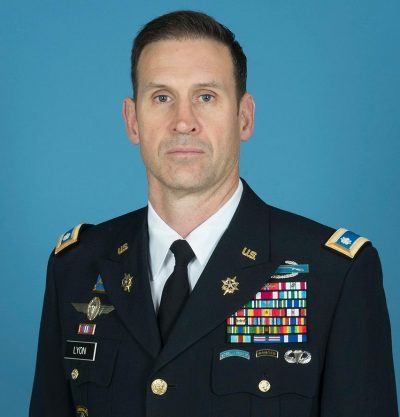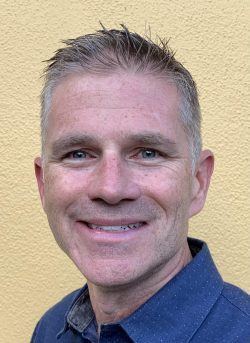The Defense Ventures Fellows program is an immersion program for active-duty military service members, who spend 2 weeks in a cohort-based training, and then 6 weeks embedded in a venture capital firm or portfolio company — after which they return to the military with new insights about the innovation economy.
At the end of 2021, we were honored to host Defense Ventures Fellows again -- see the last cohort here. Colonel Eric Lyon, a special forces operator, and Captain Dave Kurtz, a F-18 pilot and amphibious warship commander, spent six weeks with us. As they return to the Army and Navy full time, I asked Eric and Dave a few questions about their experience and to reflect on their time at Insight.
What did you learn from your experience as a Defense Ventures Fellow at Insight Partners?
Dave: I learned that there are so many companies designing software with applicability in the defense sphere, even if they don’t recognize it. Insight invests primarily in the software space, so I can only assume there is a similar amount of innovation in hardware and other sectors that VCs invest in. There appear to be countless solutions to military challenges that I didn’t know were even out there.
Eric: I have a greater appreciation of what a VC firm does and how it operates. Embedded in a deal team, I had a first-hand view of how the investment process works. The talent piece was also fascinating: I learned about Insight’s recruiting process, what skills and qualities they look for, and how they build their workforce. I also gained an appreciation for how challenging it is for VCs, however sophisticated, to understand the complexities of the DoD acquisition process. Even people with careers inside the DoD do not understand how it all works -- I certainly don’t!
What was your biggest surprise?
Dave: The sheer number of uses there are for AI and ML, as well as how many companies are working on applications for them. Prior to this fellowship, I had thought the technology was mostly for targeting; now, I see how widely applicable AI/ML is. As a prosaic but real example, on my last deployment, I had one dentist for 1,000 people. I would have loved to have had AI to predict problems and suggest where the dentist could focus, rather than just relying on manual exams, which are inefficient and time-consuming.
Eric: I was surprised—but really shouldn’t have been—how opaque the DoD can be to the investment community. This fellowship gave me a chance to really see how complex DoD makes things to the private sector.
What advice do you have for venture-backed companies who want to work with the military?
Dave: Hire veterans as employees or consultants to widen your aperture for potential uses of your technology. Further, recognize there is value in helping military members tackle problems with commercial solutions, which enables the military to focus its energy on training and readiness for combat. Every administrative task that isn’t optimized distracts from readiness, which endangers people.
Eric: I think a successful approach takes patience and persistence. We don’t make it easy. It takes years to gain expertise in the DoD enterprise and successes won’t come quickly. That said, the DoD is an in important market for many high-growth tech companies and I’m excited that more commercial firms are entering the market. Data architecture, analytics, and AI/ML are a key part of the overall modernization vision.
What are you going to take back to the Army/Navy? What do you think the Army/Navy should be doing differently?
Dave: It’s hard for me to make Navy-wide changes in my next role, but I can encourage a culture of micro-innovation within my sphere of influence. I see Insight recognizing the potential in a lot of different companies. I intend to model that “wide net” approach with the potential I see in ideas and people. I firmly believe the Navy should be trying smaller bites at the innovation and investment apples, then building those that really show promise. That is going to be difficult; the Naval Information Warfare Systems Command recently held an AI challenge called Project Overmatch. Of the four winners, two were big defense primes L3 and Raytheon. Maybe they were among the best, but it seems shortsighted to think that only the big names in defense tech have ideas. That’s akin to thinking only Admirals have good ideas.
Eric: The Army needs to develop a culture of innovation and creativity – it doesn’t have this at this time. The overall hierarchical nature of the DoD inhibits flexibility and new ideas. Candidly, conformity and groupthink dominates over freethinking and rapid evolution. The Army needs to train its leaders at every level in technology trends and innovation. Right now, the technology piece is conspicuously absent from its officers’ professional development.
Dave, is there anything you learned about VC that can be useful for you upon your return to the Navy?
Dave: Since no one has a crystal ball, VC firms invest in a lot of companies in the hopes that a small percentage become big enough to pay investors. I can do the same with ideas in the Navy, from tactics to process improvements. Brainstorming is all about gathering a lot of ideas. Rather than just try one, why not try a bunch in the hopes that one or two have a real return on investment for my Sailors.
How can venture-backed companies figure out what problems the DoD is trying to solve?
Dave: Hire vets, and continue to hire vets. They will not only bring fresh eyes to issues but a self-starting attitude as well. As they come in, a brainstorming session focused on “what were your major frustrations on deployment? During maintenance? Personnel-wise?” can illuminate a lot of ideas. People talk, and you’re likely not just getting one person’s opinion; you’re getting the consensus of complaints from the mess decks, the card games, the gym conversations. The more you hire, the more consistency and fidelity you’re likely to get on these issues. Also, set a DoD and service-specific news alert. When the service leaders speak, they are sending a message to voters and Congress. They are using their platform to advocate for ideas.
Eric: You need to hire the right people with the right background and experiences. Not every DoD person is involved in force and technology modernization -- in fact, most are not. If you want to be differentiated, VCs should do their homework to understand the major tech initiatives for every branch and major command. This comprehensive understanding will guide you as to which companies are on track and have the potential for outsized success.

Colonel Eric Lyon is a U.S. Army officer with 35 years of service. His last assignment was as Director, Competitive Intelligence, Technology and Innovation at the United States Army Intelligence Center of Excellence, Fort Huachuca, Arizona. In this role, Colonel Lyon led the Army intelligence modernization efforts with a focus on improved data architecture underpinned by data analytics, artificial intelligence, and machine learning technology.
Colonel Lyon served three tours in Iraq as a Special Forces Officer conducting full-spectrum Unconventional Warfare, Counterterror, and Counterinsurgency operations. He also served three tours in Afghanistan conducting Intelligence Operations directed against Al Qaeda and the Taliban. In Colonel Lyon’s latest tour, he led Human Intelligence, Counterintelligence, Insider Threat, Data, Identity, Forensics, and Biometric Intelligence operations for U.S., NATO, and Afghan forces.
For the Senior Service College, Colonel Lyon was selected for the Harvard National Security Fellowship where his thesis assessed catastrophic climate change as a national security threat. Colonel Lyon holds both an MA in International Relations and a BA in Political Science & History from the University of Connecticut. Additionally, Colonel Lyon was recently accepted into the prestigious Yale Global Executive Leadership Program offered through their School of Management.

An engaging, culture-enhancing Naval Officer, Captain Dave Kurtz has made a career out of thriving in unfamiliar situations. After earning designation as a Naval Flight Officer, he excelled at making rapid, informed decisions based on learned procedures while still driving innovation as a tactics instructor. Through his journey into senior leadership, Dave has consistently sought new challenges, diving into the legislative process as a Fellow in the House of Representatives; gaining insight into the future of conflict while shaping cyber operations policy on the Joint Staff; thriving in the military’s most academically rigorous environment, Navy Nuclear Power School; and most recently serving as a career aviator commanding a Navy warship.
Dave has led organizations from 170 to 4,800 people, earning awards each time he has been in command. He has commanded a combat squadron and an amphibious warship served as Executive Officer of a nuclear-powered aircraft carrier. He holds a bachelor’s degree in Mathematics from the US Naval Academy, a master’s degree in National Security and Strategic Studies from the US Naval War College, and earned certificates in Advanced Legislative Studies from the Georgetown Government Affairs Institute and Data Analytics from MIT Sloan School of Business.











%20%7C%20Insight%20Partners&_biz_n=0&rnd=884617&cdn_o=a&_biz_z=1745897310346)
%20%7C%20Insight%20Partners&rnd=808538&cdn_o=a&_biz_z=1745897310347)